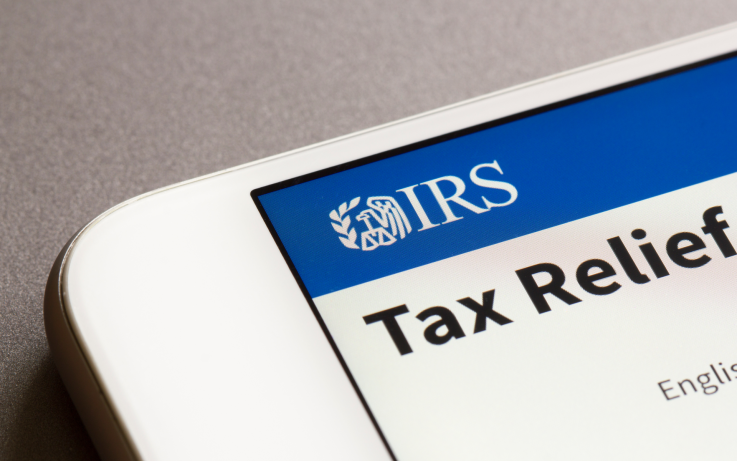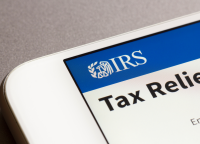Tax return for residents and non-residents in the UK

The UK economy is globally associated with stability, reliability and resistance to all sorts of challenges. Residents of the country are always confident in the future. And prosperity is achieved, among other things, by means of taxation. Although the taxation system has a number of benefits, it also requires timely reporting and payment of taxes. The obligation to pay income tax is imposed on everyone who starts to receive income in the territory of the United Kingdom, and in some cases you will have to pay for profits received in other countries. You can read more about UK taxation in this article, but for more in-depth knowledge and individual cases it is worth contacting an immigration solicitor.
Tax return
It is necessary to notify the UK tax authorities of your income and the amount of tax you pay by means of a Self Assessment Tax Return. Every income must be recognised and recorded in the document, unless it is a salary on which the employer withholds tax. If a person has not received any income other than official earnings and their income is recorded in the PAYE system, and if their income does not exceed £100,000 per year, there is no need to submit a return. People who live on savings and pensions also do not need to submit a return. However, the IRS has the discretion to make a demand for a return, then it will be necessary to send it to HMRC by any convenient means within the deadline.
Who files a Tax Return in the UK?
The accounting period is the tax year, not the calendar year. It starts on 6 April and ends on 5 April the following year. All income earned during this time is required to be shown on the Tax Return. There is an allowance of £2,500 up to which income tax is not payable, but above this amount there is an obligation to pay income tax.
Absolutely all of the following categories of person are also required to report to the IRS:
- Directors of UK organisations;
- holders of self-employed or sole trader statuses, taking into account that their level of revenue was at least £1,000 for the specified period;
- members of any form of business partnership;
- those who are not in any of the above groups but who have total income from all areas of activity of £100,000 or more.
A list of some sources of income generation is as follows:
- property lettings;
- the profitable sale of property – where the sale price exceeds the purchase price;
- interest charged by banks on deposits, shares and other securities;
- receiving interest on any transactions;
- service tips;
- material support received from the state;
- other items of income if the person is a UK resident.
There are two other purposes that are fulfilled by filing a declaration:
- Receiving benefits when there is no permanent employment;
- to reduce the tax burden on wages.
Dates and methods of filing a tax return
The tax year runs from 6 April this year to 5 April next year. You have 9 months from the end of this period to complete and submit your tax return. The amount of tax itself must also be paid into the state treasury within this period. Those submitting a tax return for the first time must first go through the registration procedure by contacting the Tax Service no later than 5 October.
There are two ways to submit a tax return:
- in paper form (deadline until 31 October);
- electronically (by 31 January of the following year).
Payment of tax must be made strictly by 31 January.
There is a nuance concerning those whose tax liability exceeds £1,000: they have to make an advance payment for the next tax year. This is paid in two instalments, 50 per cent each time. The full amount is equal to what the person paid for the previous tax year. The first payment is made as the payment of the previous period – until 31 January of the year following the reporting year, and the second payment must be made by 31 July.
Late payments and/or submission of documentation are quite costly for those who break the rules. The minimum fine is £100, but the more time that passes and the larger the amount owed, the more serious the final figure will be. This is considered and imposed on a case by case basis.
The procedure for submitting an income tax return
Everyone who has an income within the UK must pay income tax. Those who are in formal employment are exempt from filing a return and the tax is paid for them by their employer. Everyone else first registers with the IRS, then sends in the document itself.
Registration divides taxpayers into three categories:
- Self-employed;
- business partners;
- all others.
As a result of the procedure, a unique ten-digit number will be assigned, which is entered further when filing a tax return. Everyone who is included in one or another category should form and send a tax return in any convenient way:
- via the state website;
- via a special paid application;
- print it on paper and send it by post.
Electronic methods allow you to submit the declaration a little later – until 31 January of the next year. And the paper version takes into account the time for delivery and possible failures, so the deadline for submission – until 31 October of the same year in which the reporting period ended.
Peculiarities of the resident status
Determine your status of tax resident or non-resident can be determined through the state website or during a visit to a tax specialist. On this affiliation will depend on the amount of accrued tax.
Tax resident status holders must report all income they receive, regardless of the country of origin. Income tax or capital gains tax is also levied on the total amount and has no exceptions either by geography or by source of income. Non-residents are able to utilise the special tax treatment and are only required to account for money received in the UK or brought into the UK. This approach can also be used to reduce the tax burden.
Tax reliefs
Tax resident and non-resident can claim different government benefits. Speaking to an experienced tax professional can help to ensure the correct paperwork is in place to apply for them. In some cases, it is important to mathematically calculate the exact figure of income and expenditure to see if there are any actual savings. And for other cases it is worthwhile to formalise the receipt of profits through certain algorithms to maximise the reduction of the tax burden – the most optimal plan, taking into account the specific situation, on request will provide a competent specialist.
Remittance
The most well-known and frequently used way to save money is such a taxation regime as remittance (remitance). It can be used for tax return preparation only by persons who are both resident and domiciled in another country. The essence of the method consists in tax accounting only those incomes that are received in the territory of the United Kingdom. Other income received in Europe, Asia, Australia or elsewhere does not need to be reported if it was not brought to the UK. However, the country of origin of the income may have its own taxation and when preparing a tax return, it is necessary to take into account the double tax treaty, if it exists between these countries.
There are two significant nuances:
- when remitting, there is no benefit for the non-taxable amount of income, i.e. you will have to pay income tax for the entire amount of money received;
- after 7 years of residency the remit service becomes chargeable (if 7 out of 9 previous years the cost will be £30 thousand, if 12 out of 14 – £60 thousand, and if at least 15 out of 20, it cannot be applied at all).
Therefore, remission is not suitable for all people who have immigrated, but only for those whose income in other countries is high enough to cover the costs. To make the right decision taking into account all the features, mathematical calculation, as well as the application of available ways of saving tax specialists.
Typical mistakes when making a tax return
It is quite difficult not to make a single mistake when the declaration is filled out for the first time. Special attention should be paid to:
- the correctness of the figures entered in the document;
- compliance with the rules of filling (in some cases, some sections may be left blank);
- Timeliness of data transfer to the tax authorities.
Sometimes circumstances are such that it is not possible to pay the full amount of tax. Do not just ignore the existing deadlines. It is important not to delay and apply to the Tax Service as early as possible: specialists can go along and jointly develop a payment plan, according to which the money will be paid in certain instalments. If you have debts from the previous period, sometimes they are also included in the plan for gradual repayment, but you should not count on such a move – not always the tax office can give in, often debts are the reason for refusal in partial repayment of the tax amount of the current period.
It’s easy to file a tax return in the UK!
You can save a lot of nerves when preparing a tax return if you contact experienced professionals in time. An experienced lawyer will help you to go through the procedure of registration for filing a tax return without any fuss, and upon completion – will fill in the document itself. The volume and complexity of work does not matter – the declaration will be ready in time and without errors. And you can always get advice on the best way to register your income in order to optimise further taxation.
FAQs about Tax return for residents and non-residents in the UK
Are tax return corrections possible?
The UK tax system leaves it open to taxpayers to make their own corrections to returns filed in the previous two years. Adjustments to earlier documents will have to be authorised by the IRS.
The procedure for making an adjustment report is simple: a new declaration is prepared, and the pages containing corrections are marked “amendment”. The document is accompanied by an explanatory note with a justification of the reason for the changes. And the whole set of papers is sent by any available channel to the Tax Service. Further, either the missing part of the tax is made, or a petition for a refund of overpaid funds is created.
How quickly are overpayments refunded?
Typically, refunds are issued within 4 weeks of the request. However, if during the next 35 days the tax office expects some more amounts from the applicant, then usually the money is not refunded, but is offset against future payments, reducing them.
What force majeure circumstances are considered valid for violation of the deadlines for fulfilment of tax obligations?
In some cases it is possible to challenge the decision of the tax authorities to impose penalties for late submission of tax returns and payment of accrued income tax. To do this, the case must fit one of the following:
- death of a close relative;
- sudden illness of the taxpayer;
- technical failures both on the side of the taxpayer and the tax office;
- natural or man-made disasters;
- malfunction of the mail.
Any of the reasons can be valid and will give a delay in fulfilment of obligations, if the taxpayer immediately after its termination will file a return and pay the fee.







